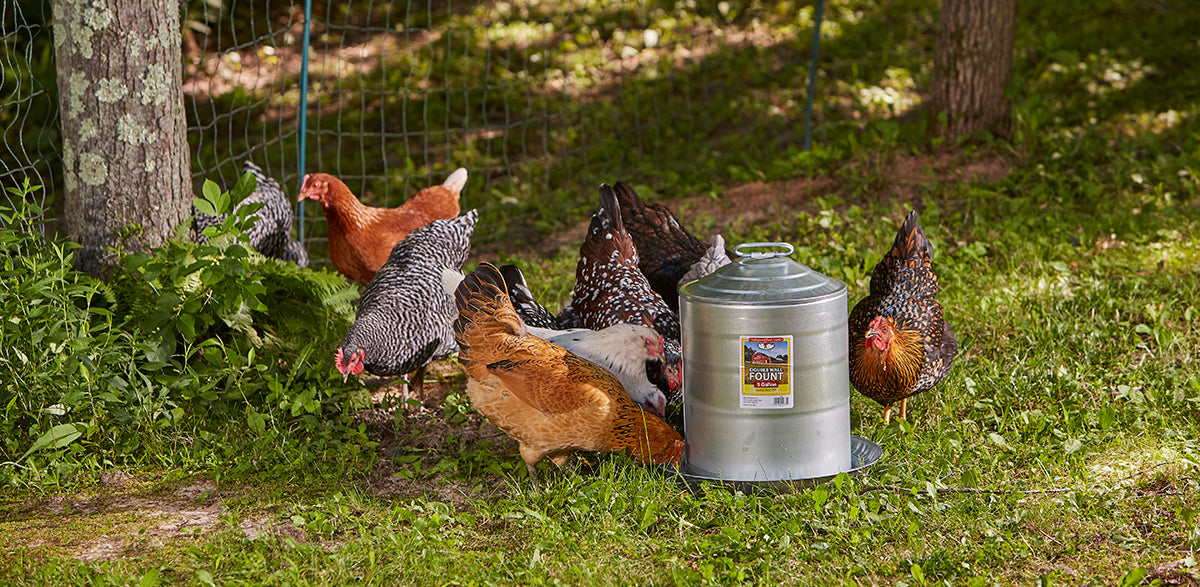Water is the most important resource needed for chickens. It’s easy to think that watering chickens is as simple as setting out any dish, filling it up with water, and calling it a day. However, most backyard chicken hobbyists understand the complexity of finding a waterer and system that works best for your flock. With temperatures heating up, it’s important to understand chicken watering requirements.
How important is water for chickens?
Not only can water determine the overall health of your chickens, but it can have a big impact on egg production and growth. According to The Chicken Chick, it plays a key role in poultry metabolism from regulating body temperature, digesting food, and eliminating body waste. Hens lack the ability to sweat, so when the summer heat hits, they spread their wings and pant. This will evaporate water from their mouths which cools the body, but will need to be replaced by drinking an increased amount of water. Providing fresh, chemical free water will keep your flock hydrated and healthy throughout even the hottest of months.
How much water does a chicken need?
A full-grown hen drinks approximately 1 pint of water each day, but can vary depending on their size, environment, and season. For warmer months, chickens may need up to 2 pints of water per day. Check out this guide to how much water your chickens should be drinking.
What are signs of dehydration in chickens?
Dehydrated chickens may show symptoms of the following:
-
Lethargy
-
Excessive panting
-
Paleness in comb or wattles
-
Limpness
-
Diarrhea
-
Unresponsive
-
Seizures
What are reasons chickens stop drinking?
There are many reasons why chickens refuse to drink water. Some common reasons include:
-
The water is dirty. Chickens avoid water that is stagnant, contains algae, dirt, or droppings.
-
There are chemicals in water. Chickens don't like chemicals or too many additives they can taste in their water. Too much chlorine is often detected by a chicken's sense of smell.
-
The water is too warm. Chickens prefer water that is cool which helps them regulate body temperature.
-
Your alpha hen is water guarding. Often times alpha hens will guard water preventing others from gaining access. Adding a secondary waterer in a differing location may be needed.
-
Your chicken may be under the weather. One of the signs of a sick or diseased chicken can be refusing water. Diseases may include: Newcastle, Infectious Bronchitis, Infectious Bursal, and Avian Encephalomyelitis.
How can you encourage chickens to drink?
If you notice or are concerned with your chickens not drinking enough water, try these tips and techniques.
-
Ensure the water is fresh and clean. Do this by making a schedule on when to check periodically and scrub waterers often.
-
Make sure the temperature is right. Move waterers out of sunny areas and change water frequently so the it remains cool.
-
Teach your chicken. Bring your chicken’s beak to the waterer or poultry nipple to show them the water access.
-
Guide their attention. Put some hay or a sunflower seed into the trough to drive the chicken to discover the water source and how to drink from it.
-
Find out what type of waterer is best for your coop and flock. From galvanized to plastic waterers, there are many options to choose from. To help find the waterer best suited for your chickens, check out this article.
What are your favorite tips to keep your chickens hydrated? Share your recommendations by tagging us on Twitter @MillerMfg











